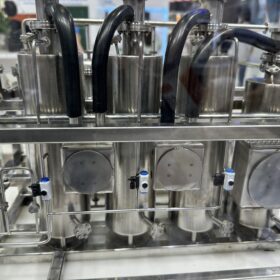Analyzing Risk and Cost Efficiency of Coupled PV-Electrolyser Systems in Austria
Key Ideas
- Researchers in Austria conducted a risk analysis on coupled PV-electrolyser systems, highlighting higher failure probabilities in electrolyzers compared to PV plants.
- The study utilized fault tree analysis to calculate failure probabilities and the levelized cost of hydrogen, emphasizing the significance of redundant design in reducing risks.
- Specific application scenarios and use cases were considered, with results indicating potential cost efficiency and reliability improvements in DC coupled systems.
- The research, published in Renewable Energy, showcases the potential of PV-electrolyser systems to meet the increasing demand for hydrogen in the future.
Researchers from the Austrian Institute of Technology conducted a risk analysis on coupled PV-electrolyser systems, revealing that electrolyzers have a higher probability of total system failure than PV plants. By combining fault tree reliability modeling, component-level failure data, and economic evaluation, the study introduced a novel risk-cost framework for designing and operating such systems under real-world constraints. The analysis considered four application scenarios, focusing on state-of-the-art systems with different coupling mechanisms. Results showed that inverters and the air blast cooler in the electrolyzer system were most failure-prone, emphasizing the importance of redundant design in reducing system failure. The study highlighted the potential for significant risk reduction and cost efficiency improvements through redundant design and DC coupled systems. Reliability percentages were provided for different scenarios and use cases, demonstrating the impact of design choices on system performance. The research, published in Renewable Energy, signifies the role of PV-electrolyser systems in meeting the growing demand for hydrogen in the future, offering a reliable and cost-effective option for hydrogen production.
Topics
Utilities
Renewable Energy
Technology
Energy Infrastructure
Research
Economics
Science
Reliability
Risk Analysis
Latest News
